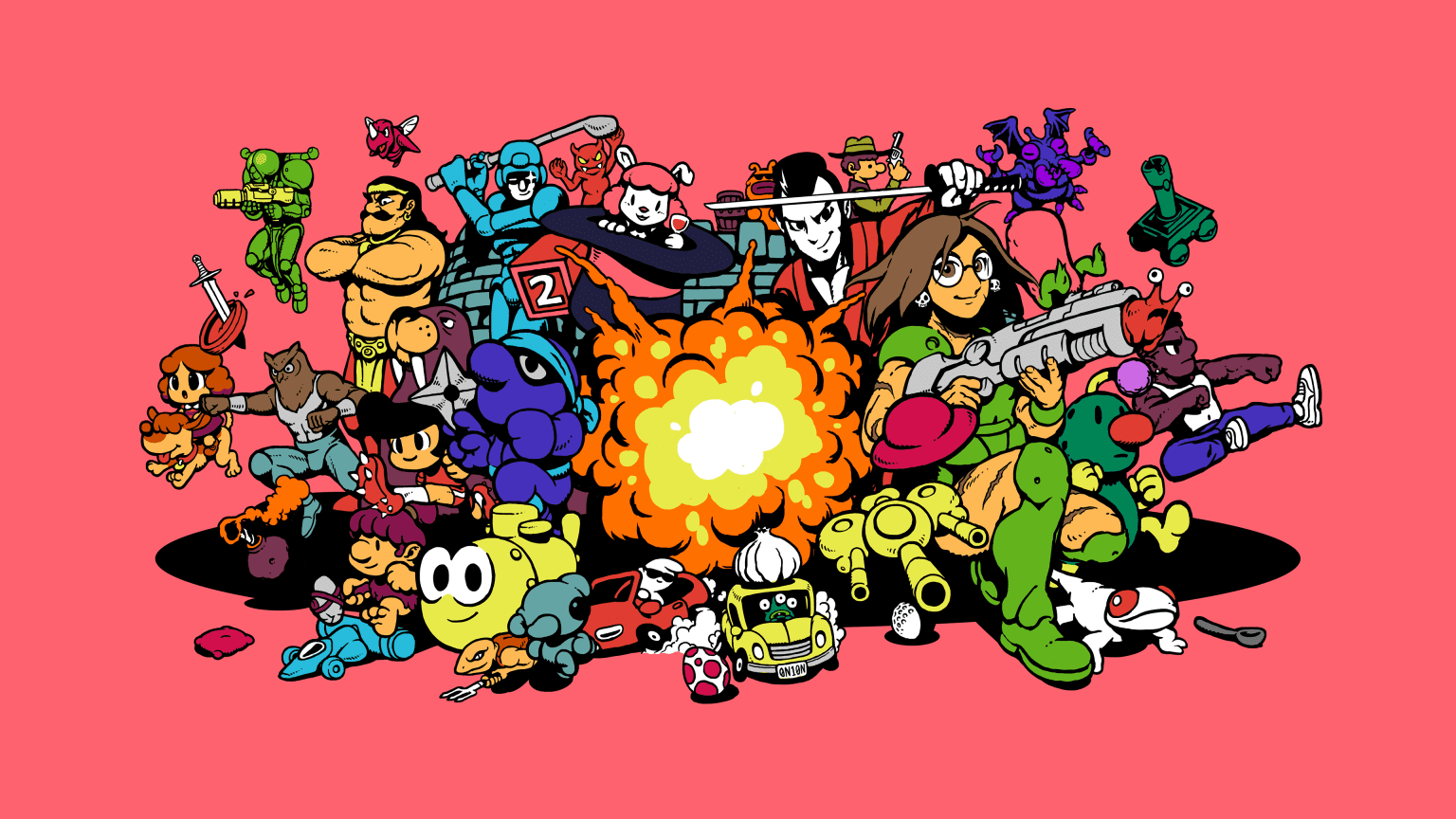I’ve played games my entire life, but I’m far from a scholar. Despite some credentials—I’ve hit Legend in Hearthstone and read Masters of Doom, and I play a mean game of Galaga—the reality is, I’ll always be green compared to those who came before me. My knowledge of pre-‘90s gaming is rough, and my skills non-existent.
And yet, that doesn’t stop me from appreciating the lore. For every modern game like Uncharted or What Remains of Edith Finch, there are the older experiences that paved the way. Pong. Pac-Man. King’s Quest. Those games pushed the boundaries of their hardware, transcended the limits of our imagination, and challenged us to play “just one more game.” (If you entered the arcade with a fistful of quarters as a child, you went home empty-handed but smiling.)
UFO 50, developed and published by Mossmouth, makes any person feel like a gaming historian. Released this past September after a staggering eight-year development cycle, UFO 50 does the impossible: gives players access to an entire fictitious catalog of ’80s games, says “Go! Enjoy,” and charges just $25 for the experience. (That’s a bag of quarters for the whole dang arcade!)
I covered UFO 50 back when it was announced in 2017, and my excitement for this collection of games never wavered. Now, having played all 50 of its titles across 90+ hours, I’m finally ready to share my verdict.
50 Cabinets, Zero Quarters
UFO 50’s website URL is “50games.fun”—a fitting description of the final product. Designed by some of gaming’s most prolific creators, including Derek Yu (Spelunky) and Ojiro Fumoto (Downwell), UFO 50 is a love letter to gaming’s early days. Every element of the experience, from the pixel art aesthetic to the bouncy 8-bit chiptunes, harks back to Saturday mornings huddled in front of a CRT television gunning for a high score in Contra or Tetris.
From the very outset, UFO 50 has been billed as a collection of 50 games (not “micro” games like in WarioWare, but fully realized games) that players can explore at their leisure. These titles range in genre from shoot-em-ups and RPGs to platformers and sports games, many with dedicated single-player, co-op, and versus modes. Some games focus on quick, five-minute fun, while others offer hours of gameplay, complete with save states.
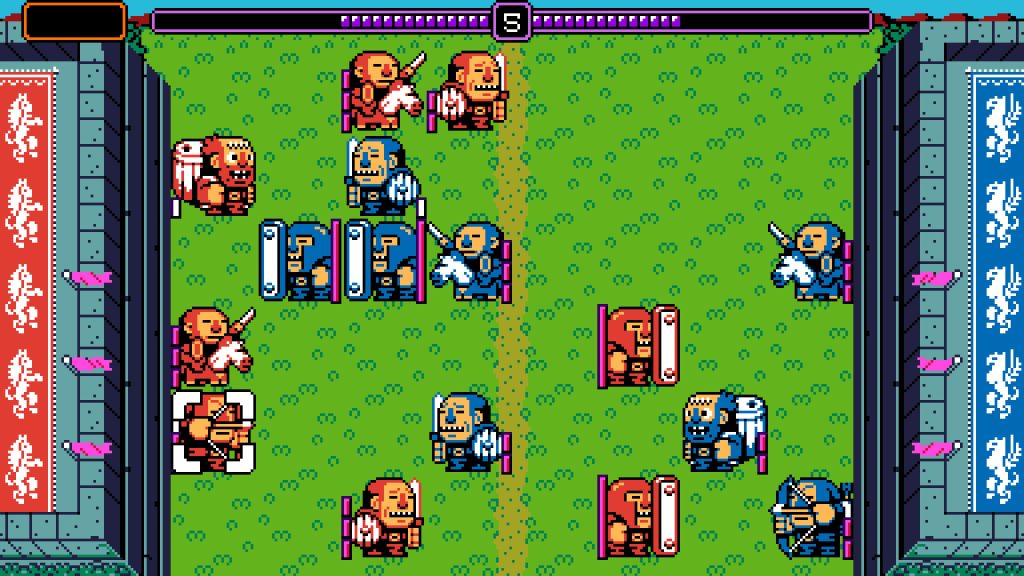
In other words, UFO 50 is like a long-lost bin of NES games (or a room of arcade cabinets, take your pick) that you’ve recently come across for the very first time. Only by dusting off the cobwebs and taking each game for a spin can you learn what each game is about—and possibly discover some magic in the process.
If the premise seems overly ambitious or aspirational, you’re not alone. It’s been seven years since I read the initial pitch, and I still remember wondering, Surely, they can’t pull this off… can they? It didn’t help that the game’s makers originally planned to launch UFO 50 in 2018—and then went radio silent for what felt like an eternity.
Well, it turns out that silence is indeed golden. Not only does UFO 50 honor its original promise, but it goes above and beyond everything I could’ve hoped for.
Pressure Makes Cherries
I’m not going to go deep into any of UFO 50’s specific games—after all, half the fun is discovering them for yourself. (If you want the full skinny, check out my mini-reviews of every UFO 50 game.) What I will say, however, is that having sampled each game and completed many more, there is quite a lot to see and do, almost all of which is fun.
Perhaps UFO 50’s greatest strength is its variety. Like I said before, you’re not just booting up a single game; you’re essentially playing an entire console library worth of titles, each with unique stories, mechanics, and end goals. A helpful home interface allows you to browse all 50 games; you can also filter by category (“quick” plays, “epic” plays, etc.) or by multiplayer mode.
Despite the variety of experiences, each game follows the same core principles. Complete a title (i.e., reach the end credits), and you’ll nab an in-game trophy, represented by a golden cartridge on your home screen. Go above and beyond (beat a high score, hit 100% completion, etc.), and you’ll be awarded a coveted “cherry,” depicted as a red cartridge.
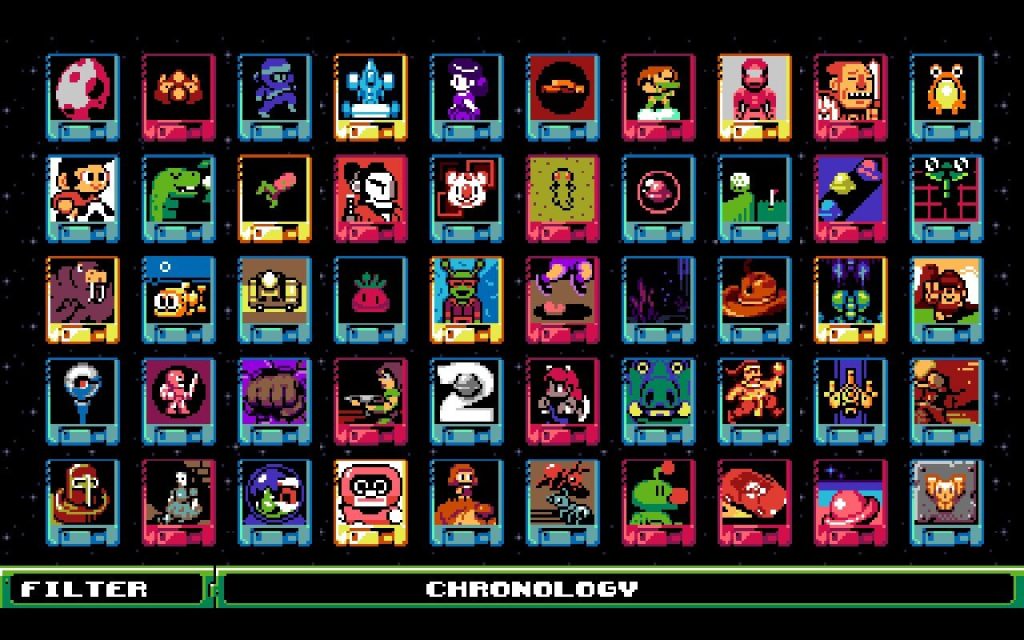
These accolades are not easy to get. While I’ve played all 50 games, I’ve only completed about 20. I’ve cherried even fewer—eight, as of writing. UFO 50 is as old-school as old-school games get, with limited lives, frugal resources, and little hand-holding. Each game follows a minimalist control scheme—just directional arrows and two buttons—yet offers oodles of depth rivaling even the most modern releases.
If you’re wary of “game over” screens, hitting reset ad nauseam, or scratching your head at a tricky puzzle, this is not the game for you. However, for those willing to dig deep and learn its intricacies, UFO 50 has so much to offer.

Okay… But What Is It?
UFO 50 truly is a game greater than the sum of its parts. As I played through each of its 50 titles, I took time to jot down what I liked, disliked, and loved about various aspects of the experience.
From the very beginning, the UFO 50 team had set out to create an experience that was ambitious in scope yet focused in execution. The game’s art palette uses just 32 colors, but you’d never guess it based on the wildly creative results. The two-button controls are easy to grasp and rarely cumbersome (a few games would have benefited from an extra button or two, but they’re exceptions). And though there are indeed 50 full games, they’re each appropriately sized, ranging in length from 30 minutes to several hours.
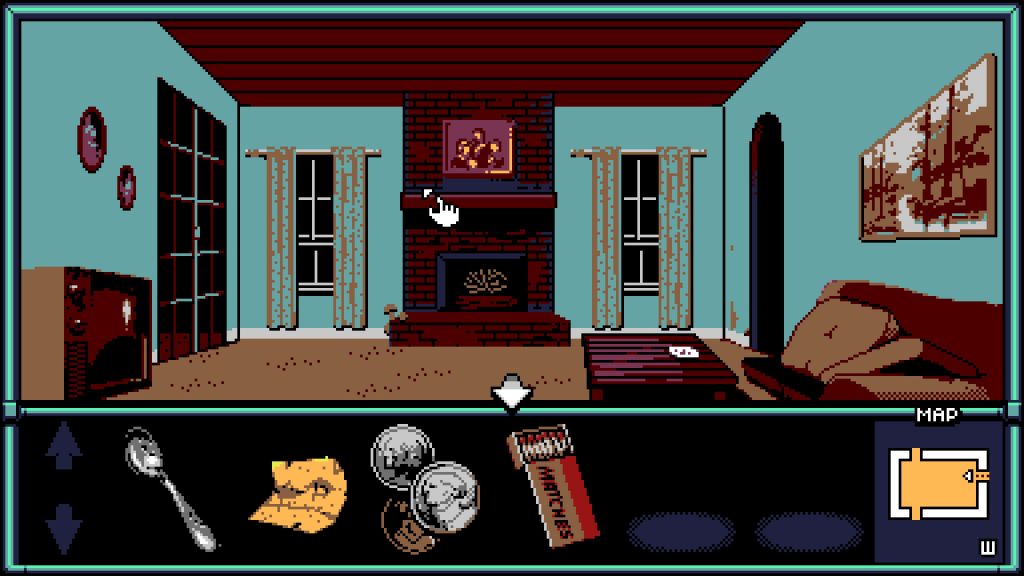
No one game dominated my thoughts enough to warrant individual “Game of the Year” merit. Sure, there’s the cerebral strategy game Bug Hunter, the twitch-heavy shooter Campanella 3, and the surprisingly lengthy RPG Grimstone. But the tight scope also means no one game ever quite rivals the greatness or complexity of, say, 2024’s Balatro.
But that’s kinda the whole point. UFO 50 regularly encourages players to bounce from one game to the next, “starring” their favorites and leaving the rest to gather dust. No two players will enjoy all 50 the same way. (I loved the shmups, sports titles, and slower puzzle games, but disliked most of the platformers.) This is a game meant to spark discussion between co-workers and rivalries between friends. Heck, you might hate one game, leave it, return to it after a friend shares their secret strategy, and realize you loved it all along.
I can’t say UFO 50 is a perfect game; if anything, it’s wonderfully imperfect. And that’s why it’s so special.
Final Thoughts
UFO 50 is an unabashed celebration of why we game in the first place. Yes, it’s brutal and obtuse and even frustrating at times, but it’s also calm, and clever, and serene, and beautiful. I wish I could wipe my brain, Men in Black style, and dive back into this one with fresh eyes and ears.
For those who haven’t seen a second of footage, go in with little expectations and see where the journey takes you. If you’ve got a buddy or partner, even better; connect your laptop or Steam Deck to your television, hand out a second controller, and enjoy many of these experiences alongside them.
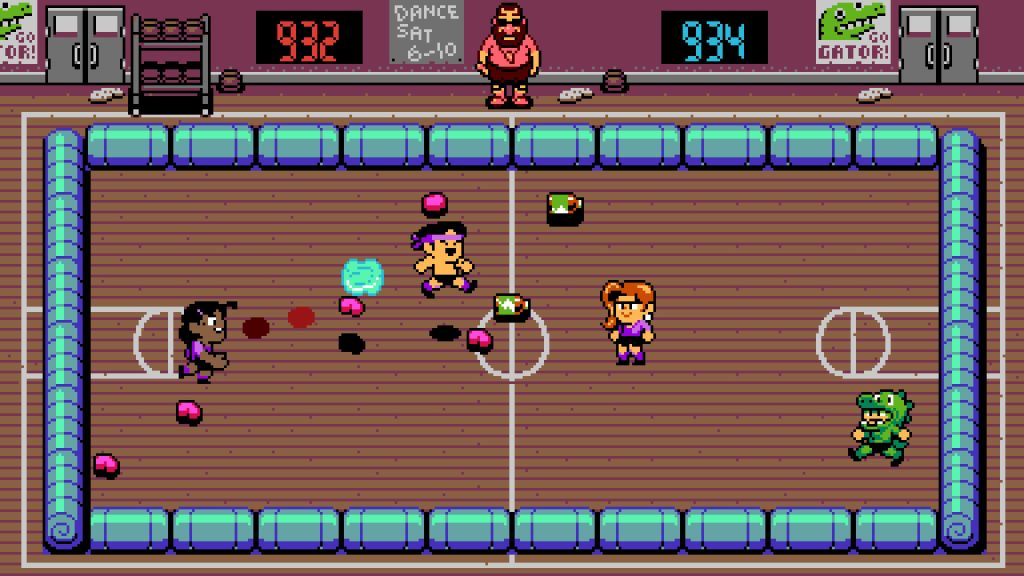
For days, I’ve been mulling over the final score I’d award UFO 50. It’s such a rich experience, and no two people’s mileage will look quite the same. It’s also a game designed for a certain era of gamer—which sadly means it won’t jive with everyone. Even still, I’ll recommend UFO 50 to just about anyone.
50 games; 25 bucks. UFO 50 is the best value in gaming since The Orange Box, and though other games have it beat in terms of depth, far fewer can lay claim to its charms. If ‘80s gaming is your jam, this is a no-brainer. And if it’s not… give it a try anyway, if only to appreciate how far this wonderful pastime has come.
Score: 9.8/10
UFO 50, developed and published by Mossmouth, is available now on Steam, with additional platforms planned for the future. MSRP: $24.99.
David is the founder of The Punished Backlog. He has a problem finishing games he starts.
Just beat: Hollow Knight: Silksong.
Working on: Yakuza 0, Iconoclasts, Metroid Prime 4: Beyond.
Can't wait for: Demon Tides.
Follow David on Twitter at @David_Silbert to keep up to date with all things The Punished Backlog.


